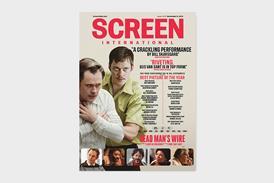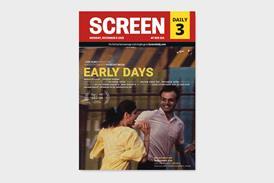There are those who enjoy movies, can discuss directors at dinner parties and regularly read film reviews; and then there are the cinephiles. A breed apart from 'regular' movie fans, they are afflicted by a passionate, argumentative, all-consuming love of Film As Art, and have figured out ways to accrue vast knowledge and devote their lives to the subject - getting jobs as critics, curators, programmers, academics, researchers, and, on occasion, as film-makers. They help to set the critical agenda, shape and inform public opinion, and most crucially, bring new talent and trends to light.
The classic tradition of Western cinephilia was formed by a post-war generation who gathered at cinematheques, student cine-clubs and repertory movie-houses in the world's major cities, contributing to magazines such as France's Cahiers Du Cinema and the UK's Sight & Sound. But the landscape has changed since those halcyon days. Rep 'arthouse' cinemas are a dying species, and the high ideal of a serious film culture has been wiped away by media interest in celebrity gossip and box-office statistics.
That said, it is clear from the thriving festival circuit and the online world that cinema continues to entrance new generations into life-absorbing obsession. The cinephile however, is changing.
Cinephiles emerging in the 1970s and 1980s had their schooling through the family television. The schedules were rich with lovingly selected seasons, double bills introduced by critics and brilliant documentaries. Nowadays, terrestrial TV is allergic to subtitles, major film documentaries are rarely commissioned, and cable, despite its promise to cater for specialised audiences, has been a disappointment. So where are the entry points for the nascent cinephiles of the 21st century' The answer lies somewhere between the new and the old.
The unexpected explosion of retail DVD has led unarguably to more of world cinema's back catalogue being available than ever before. The snag is that discs are expensive, and the best are hard to track down. If you live in a country with no repertory cinema, where your viewing choices are either from Hollywood or the latest efforts of a highly commercial local film industry, then you will likely go underground to get your real film fix.
In Asia, DVD pirates have responded to niche market demand far more efficiently than the mainstream, supplying a wide range of classic and contemporary world cinema. And if your local bootlegger doesn't have that rare Chris Marker short or the new Pedro Costa, the internet might be the solution.
BitTorrent, the online file-sharing system, may be drowning in bad copies of new US releases and Japanese anime, but dig deeper and digitally savvy cineastes are doing their best to circulate the good stuff. Some may argue the true film-lover would not deny artists the small amount of revenue they patently deserve, but the opposing view is, "I live in the middle of China/Indonesia/Wisconsin, how else am I going to see this'", and many independent film-makers are simply pleased to reach a wider audience, something their distributors have failed to achieve.
On more familiar ground, film festivals, as they proliferate in greater numbers than ever before, are becoming the alternative distribution channel for challenging, experimental and otherwise 'un-marketable' films. Of course, not all festivals are good, many are by-numbers municipal events, but a large portion of them, from Cluj (in Transylvania, Romania) to Ouagadougou (in Burkina Faso), are adept at creating intense buzz and excitement around the film as an event. They also bring cinema (on the big screen as it was intended, with film-makers in attendance) to places not blessed with rep houses or well-stocked DVD libraries. Here there is still the possibility for accidental discovery and revelation, and new cinephiles will be recruited into the fold.
Unsurprisingly, cinephiles are increasingly living on the internet. It is a source of instant global information, a marketplace for rare DVDs, a place for communication and discussion, and a platform to publish ideas and opinions via blogs, of which a startling amount are devoted to film. The new cinephile no longer aspires to be a critic at a major newspaper or magazine; if you have a distinctive set of interests, a decent prose style, and are prepared to go online, then a readership will surely follow; and no-one will judge you for your relative inexperience. Meanwhile, cinephile journalists, frustrated with diminishing space for film in print, are starting to blog independently. The boundaries between the professional and amateur cinephile have begun to blur - a further mutation.
If there is a trend in all this globally aware, super-connected cinephilia, it is ironically about looking at what is close to home. As a reaction against both the Hollywood hegemony and the chauvinism of the classic arthouse canon, young cinephiles who live in the cinematically less well-travelled regions (south-east Asia, Eastern Europe, the Middle East) are able to reconsider the films of their home countries in a level of depth and detail that visiting programmers and critics can never muster. They champion ground-breaking young directors, as well as excavating marginalised masters of the past. If there is one element of classic cinephilia that endures universally, it is the cult of the auteur.


















No comments yet